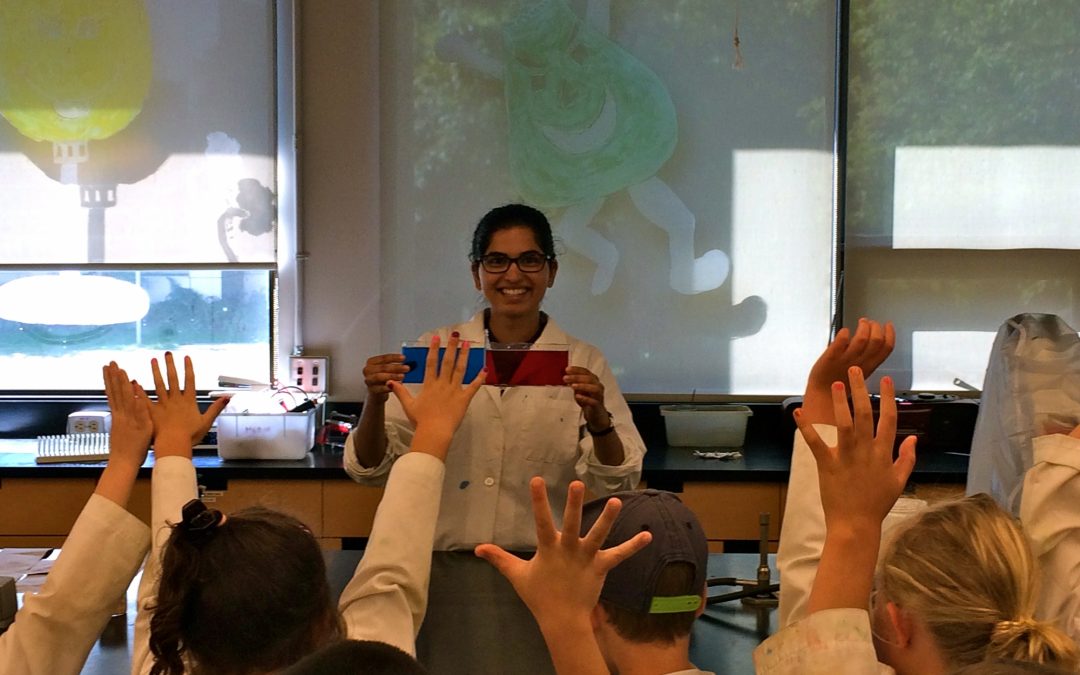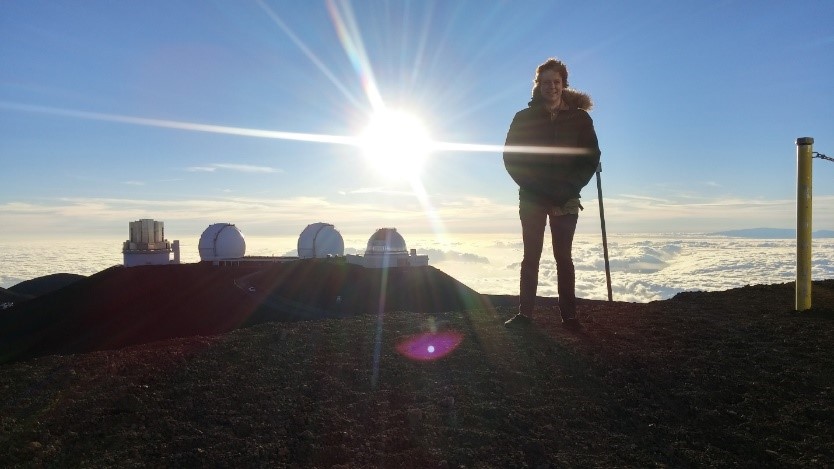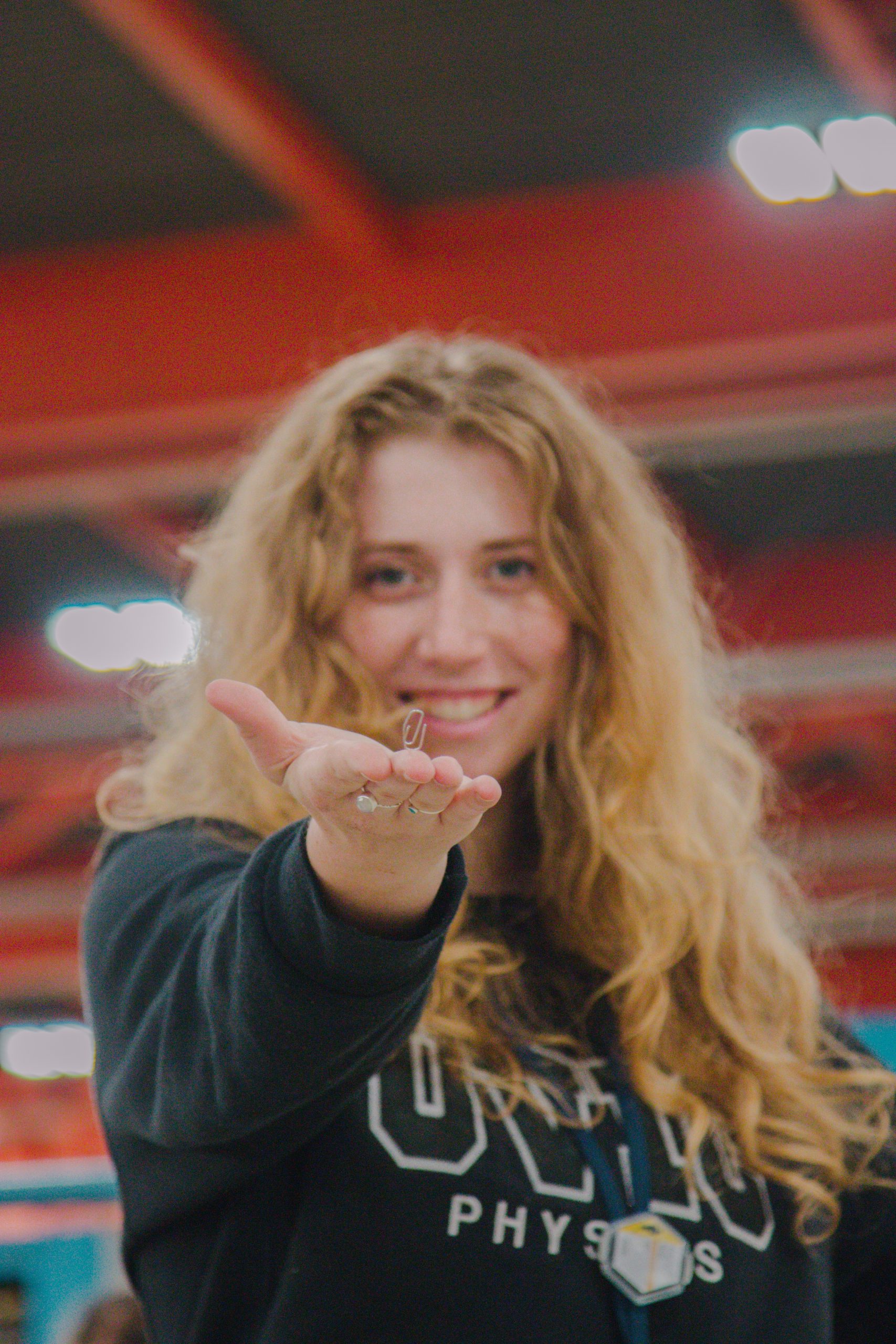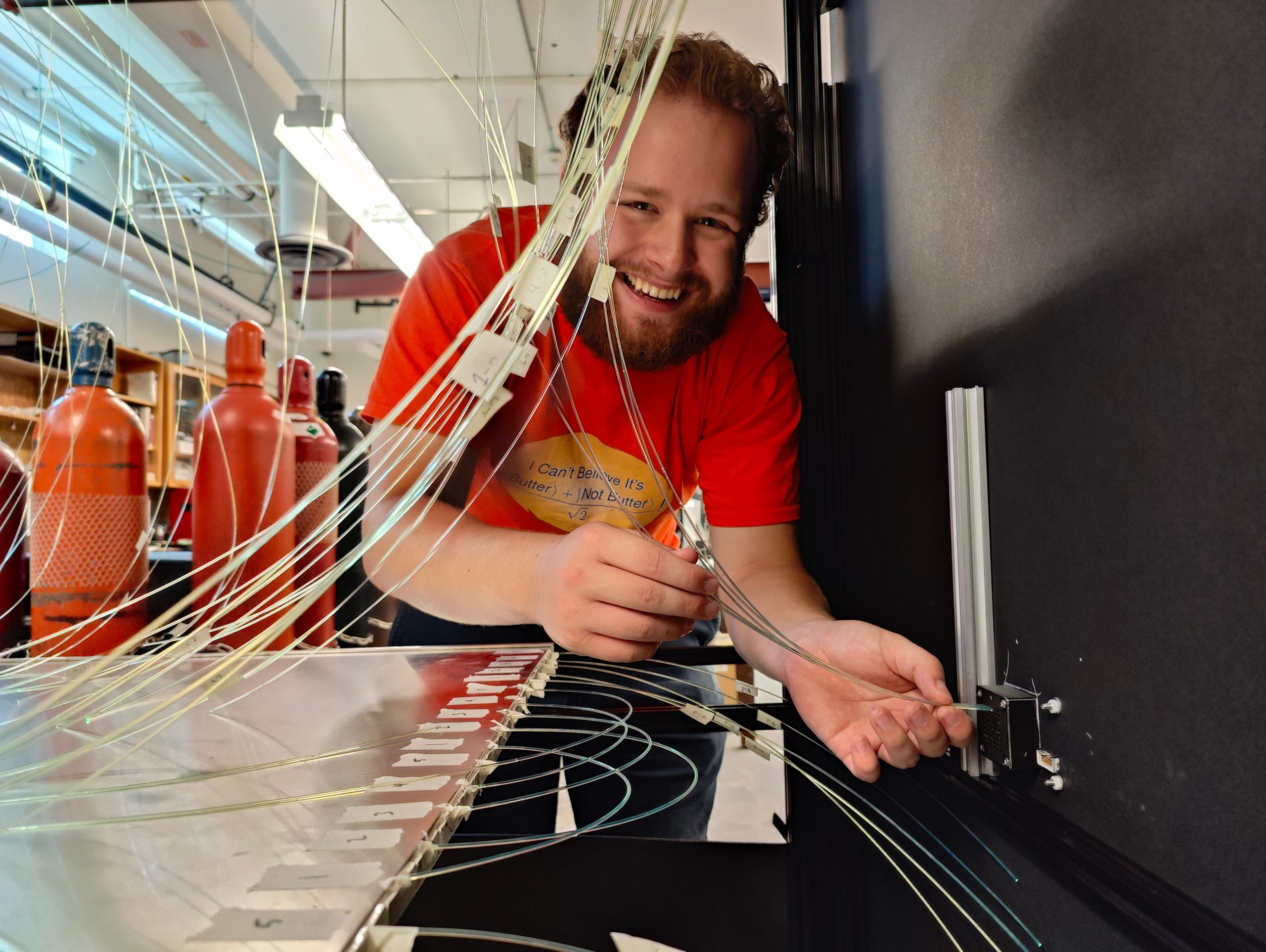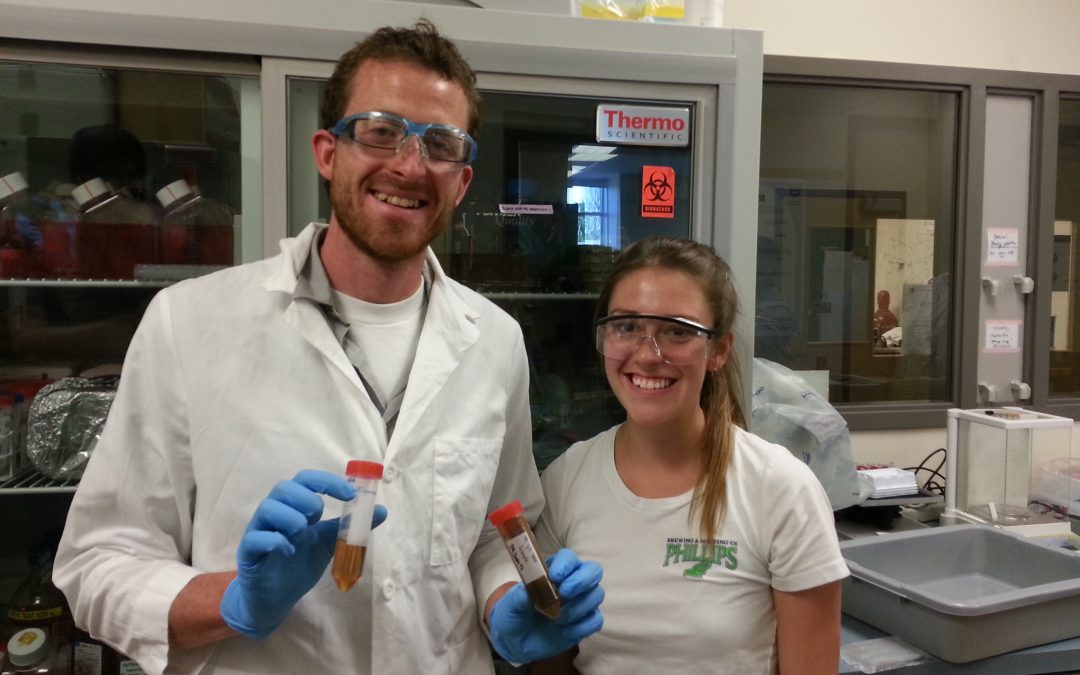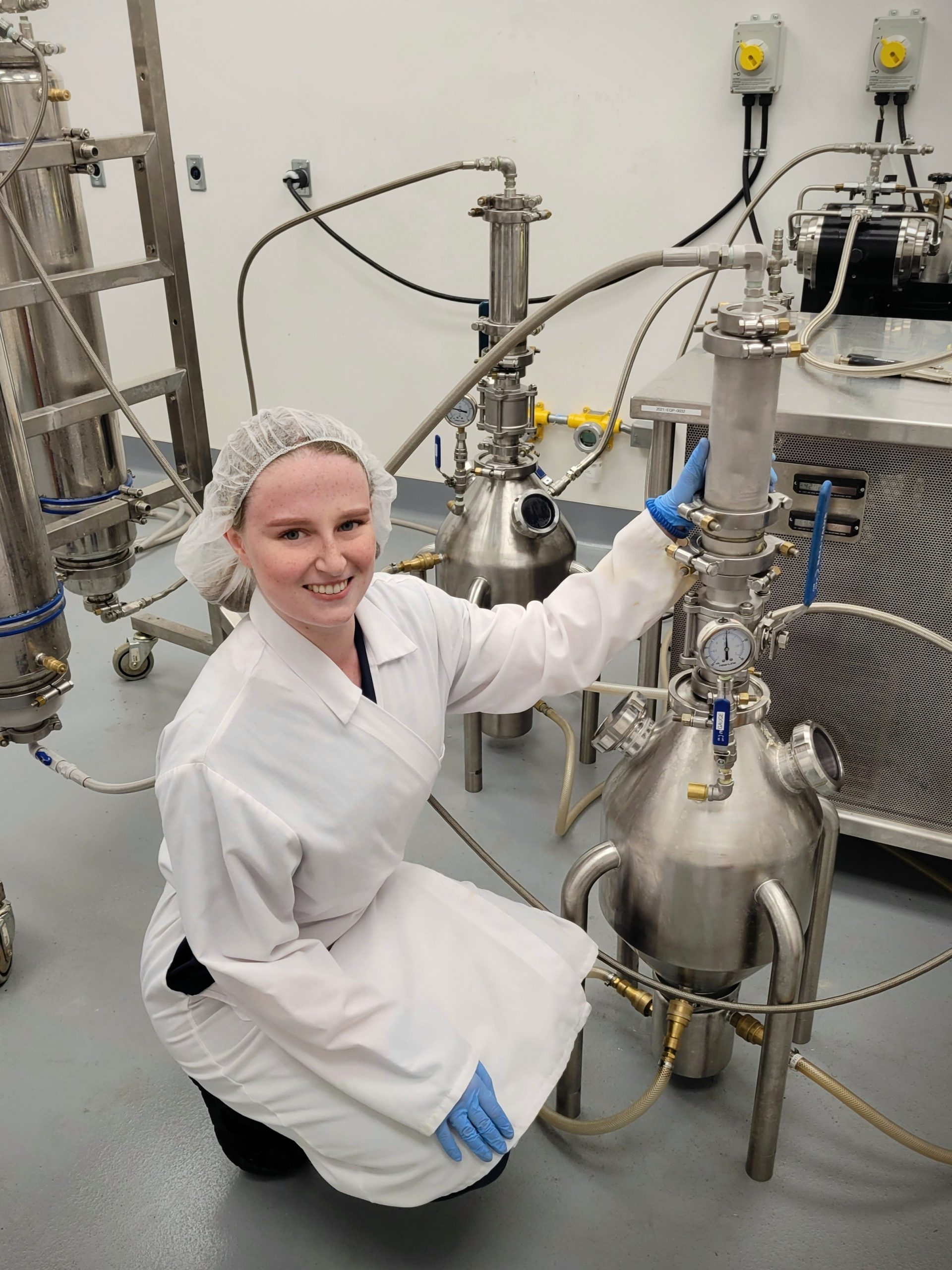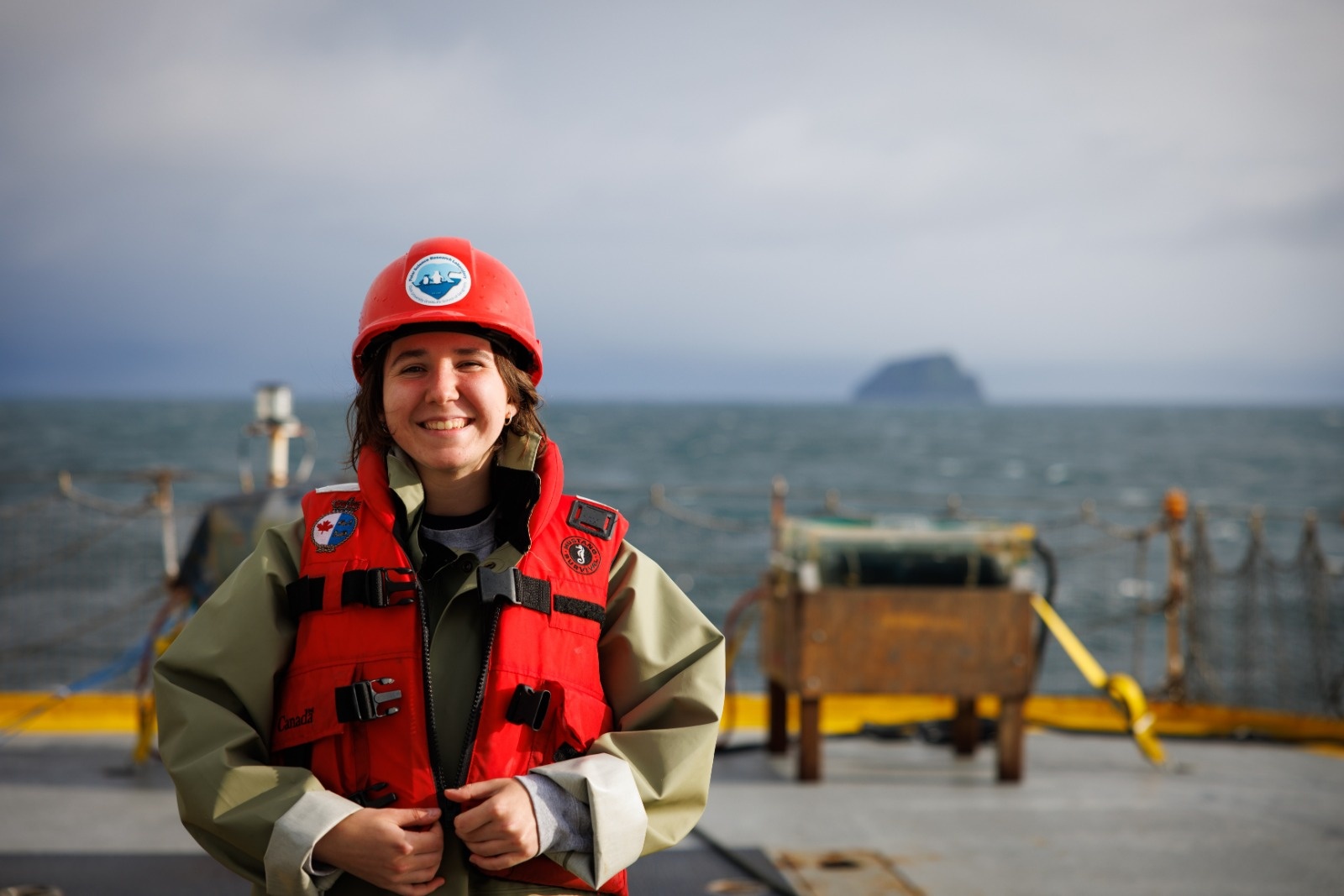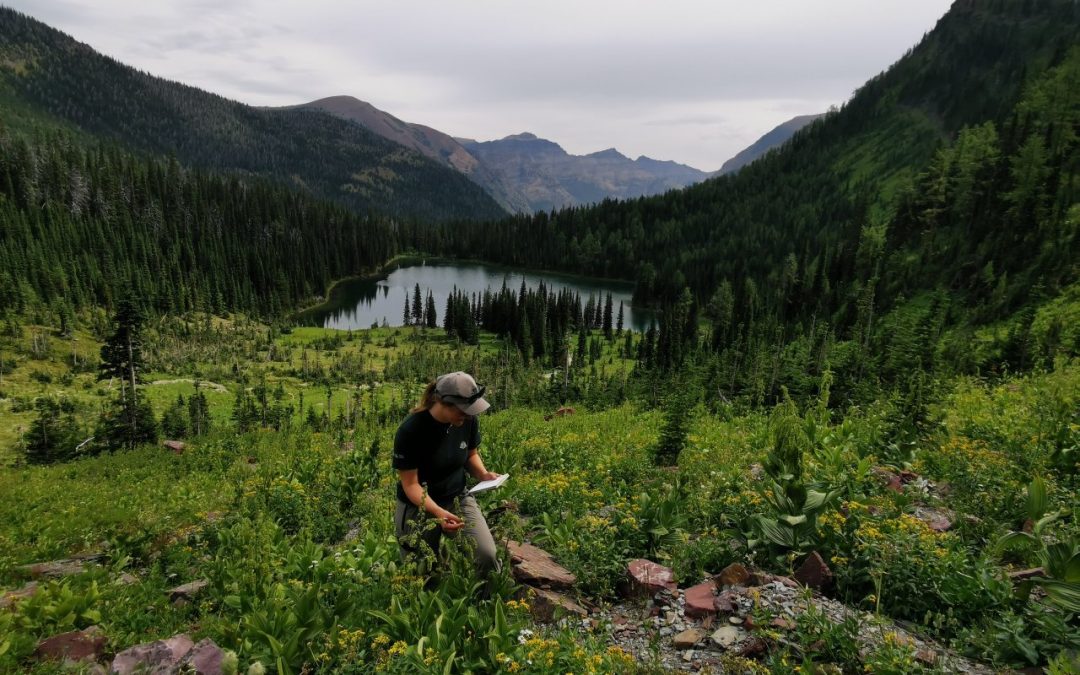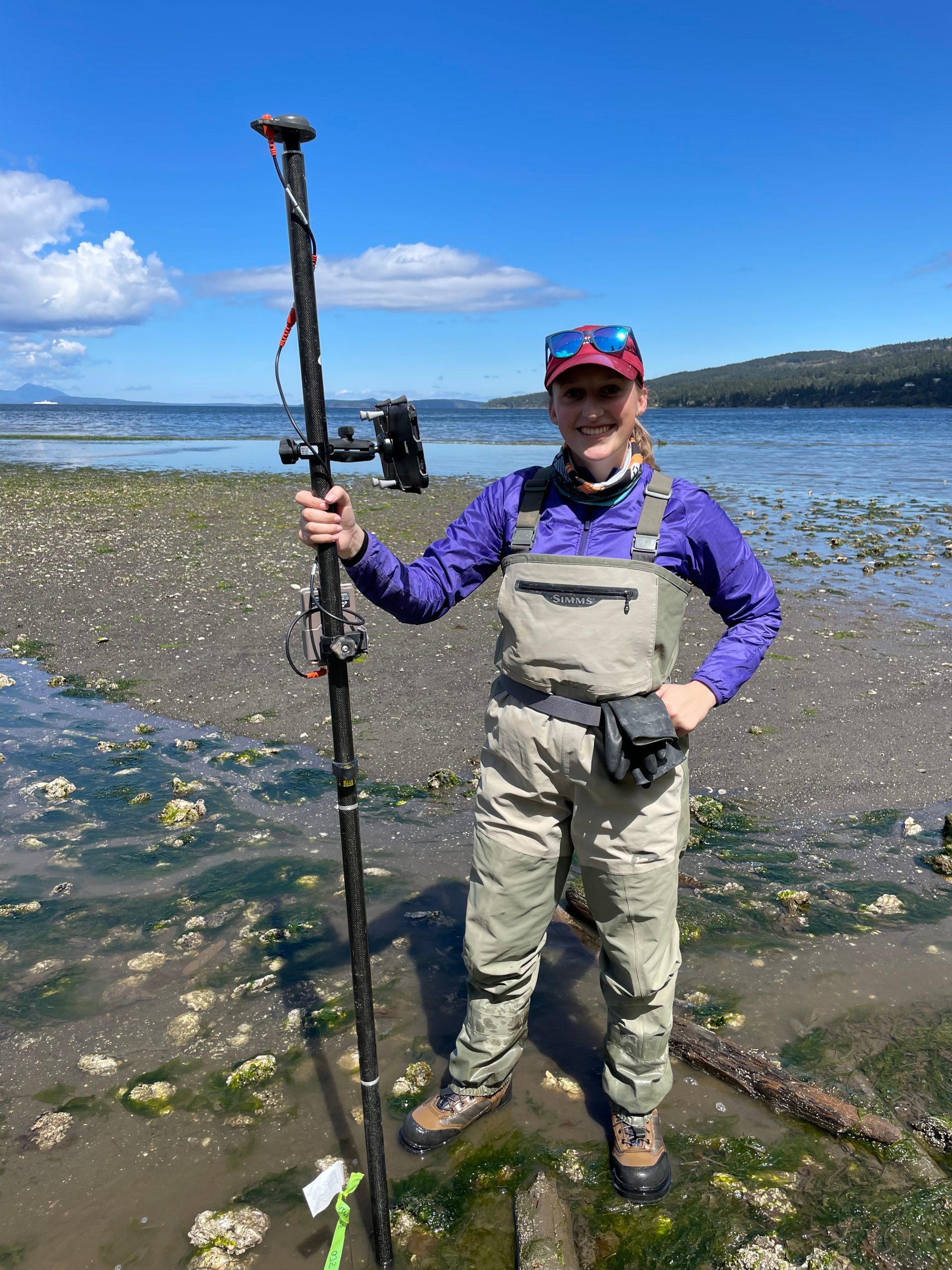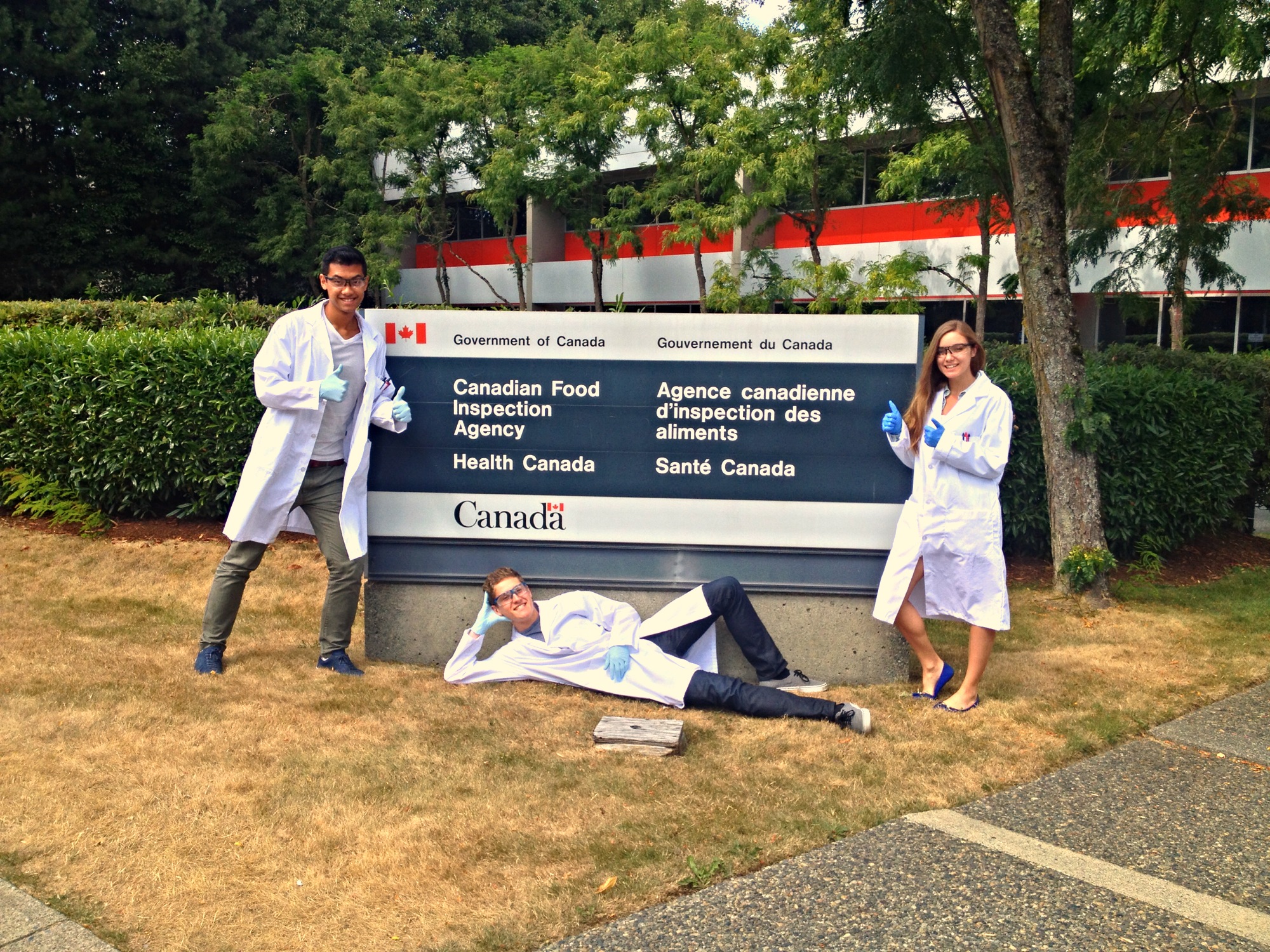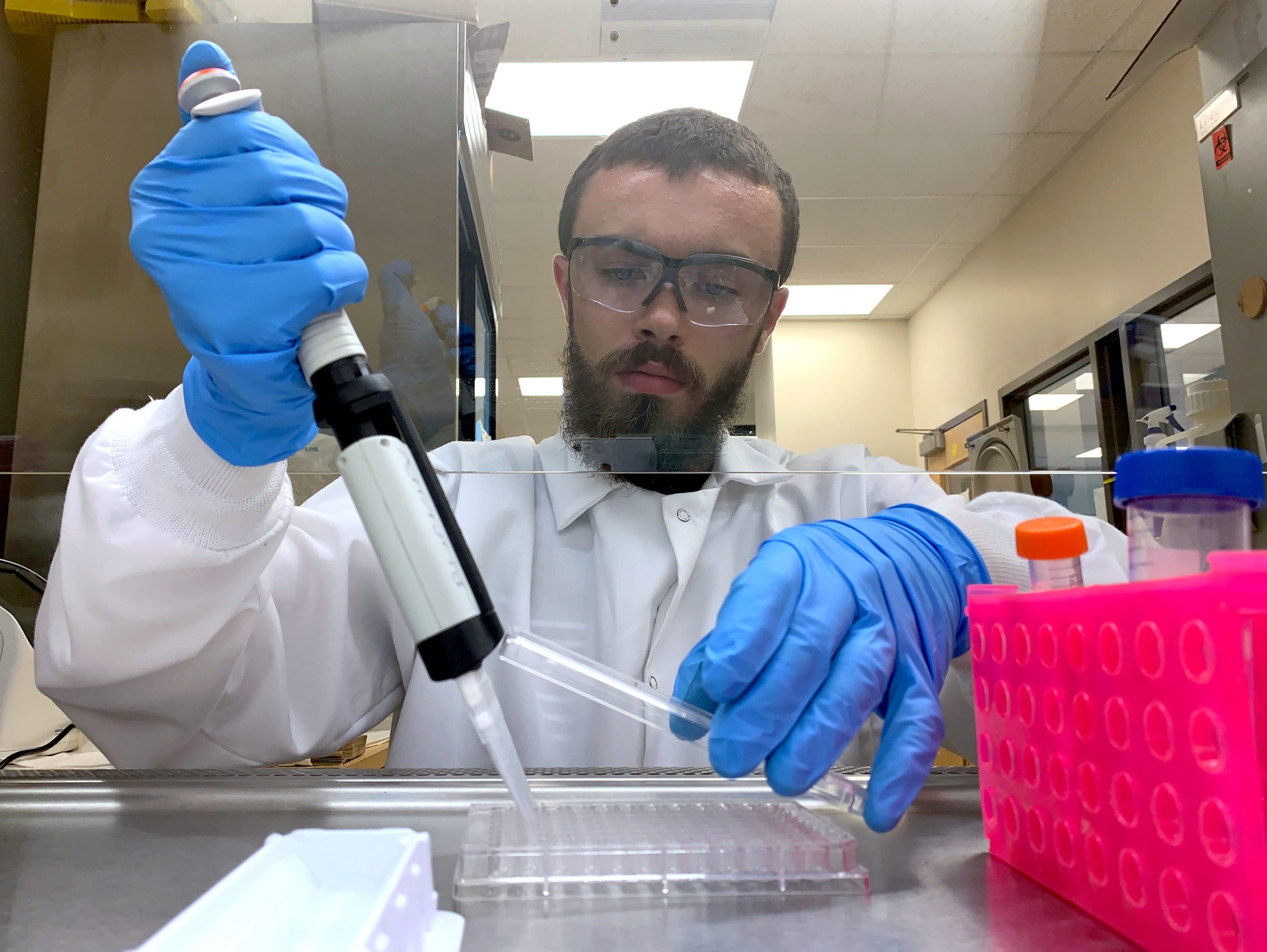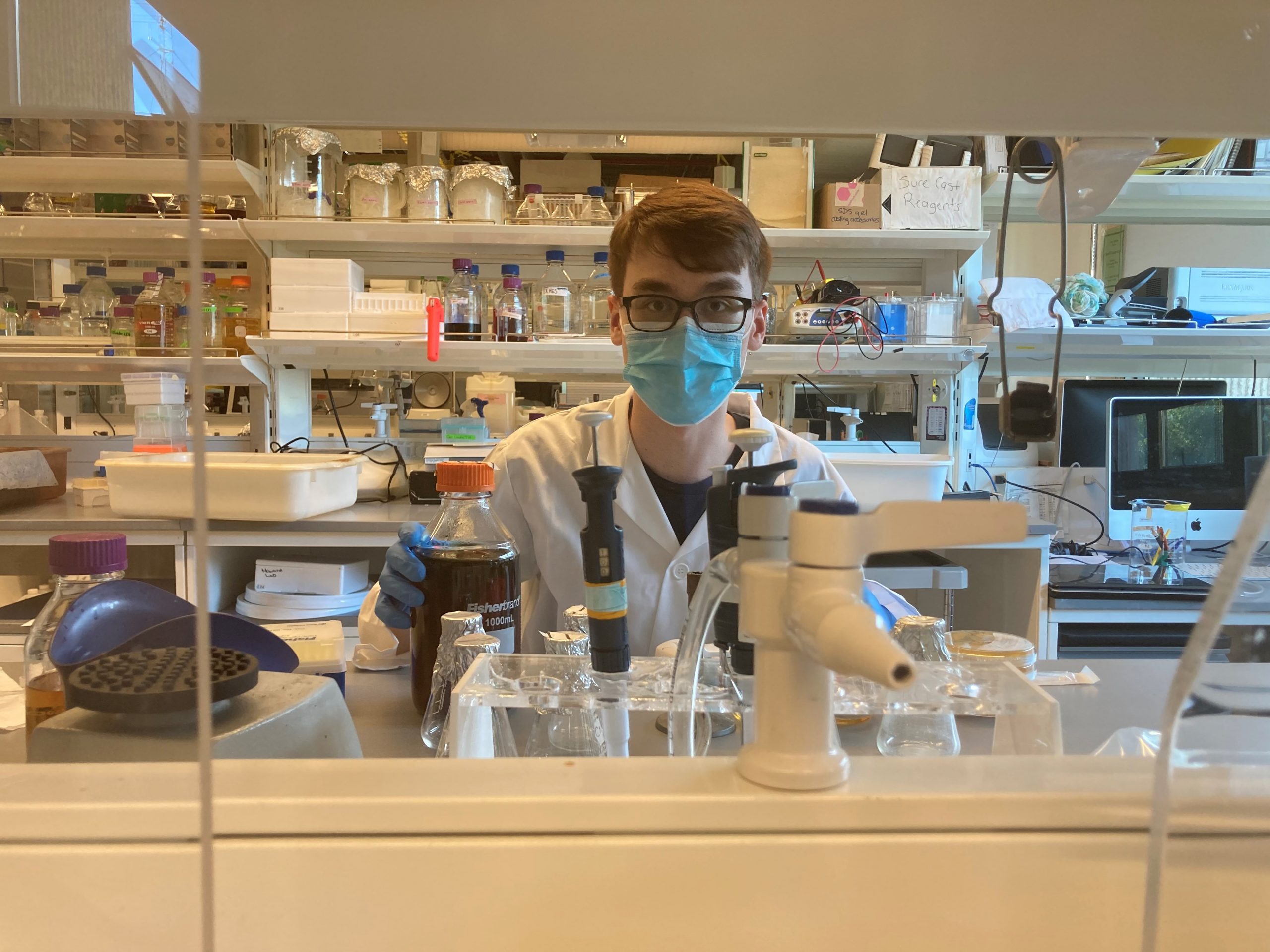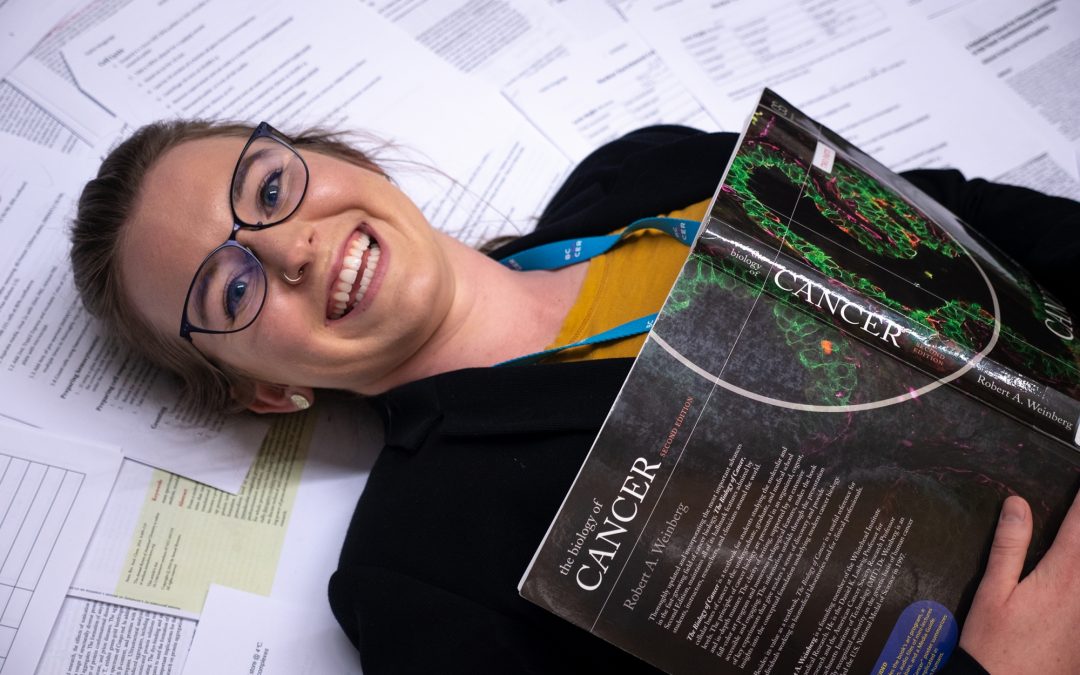QUANTIFICATION OF MORPHOLOGICAL, FUNCTIONAL, AND BIOCHEMICAL FEATURES OF H9c2 RAT CARDIOMYOBLAST RETINOIC ACID DIFFERENTIATION
bioRxiv
Nicole S. York, Joel E. Rivera, Mohammadreza Rahmani Manesh, K’sana Wood Lynes-Ford, Rory Smith, Leigh E. Wicki-Stordeur, Laura T. Arbour and Leigh Anne Swayne
MHCII+CD80+ THYMIC EOSINOPHILS INCREASE IN ABUNDANCE DURING NEONATAL DEVELOPMENT IN MICE AND THEIR ACCUMULATION IS MICROBIOTA DEPENDENT
Journal of Leukocyte Biology
Dominique M Gatti, Courtney M Gauthier, Brandon E Moeller, Rachael D FitzPatrick, Mia H E Kennedy, Victoria Pluzhnikova, Kate M E Conway, Julian Smazynski, Robert L Chow, Lisa A Reynolds
BACILLUS SUBTILIS SMALL REPLICATIVE PLASMID COLLECTION INCORPORATING FIVE DISTINCT ORIGINS OF REPLICATION AND COMPATIBLE WITH GOLDEN GATE DNA ASSEMBLY
FEMS Microbiology Letters
Andrew M Rodd, Abrar Jawad, and Francis E Nano
ANTIMICROBIAL GROWTH PROMOTERS ALTERED THE FUNCTION BUT NOT THE STRUCTURE OF ENTERIC BACTERIAL COMMUNITIES IN BROILER CHICKS ± MICROBIOTA TRANSPLANTATION
Animals
Colten R. Hodak, Bescucci DM, Shamash K, Kelly LC, Montina T, Savage PB, and Inglis GD
VOLTA: AN ENVIRONMENT-AWARE CONTRASTIVE CELL REPRESENTATION LEARNING FOR HISTOPATHOLOGY
arXiv
Nakhli R, Zhang A, Farahani H, Darbandsari A, Shenasa E, Sidney Thiessen, Milne K, McAlpine J, Nelson B, Gilks CB, and Bashashati A
MULTIOMIC ANALYSIS OF HOMOLOGOUS RECOMBINATION-DEFICIENT END-STAGE HIGH-GRADE SEROUS OVARIAN CANCER
Nature Genetics
Burdett NL, Willis MO, Alsop K, Hunt AL, Pandey A, Hamilton PT, Abulez T, Liu X, Hoang T, Craig S, Fereday S, Joy Hendley, Dale W. Garsed, Katy Milne, Shreena Kalaria, Ashley Marshall … Elizabeth L. Christie EL
USING NANOMATERIALS TO ADDRESS SARS-COV-2 VARIANTS THROUGH DEVELOPMENT OF VACCINES AND THERAPEUTICS
Frontiers in Materials
Maria Victoria Hangad, Sarah Keshvani, Niya Kelpin, Walters-Shumka J, Hood M, Cameo Volk, Danika Pal, and Willerth SM
SPATIAL TUMOR MICROENVIRONMENT CHARACTERIZATION AND OUTCOME OF RELAPSED/REFRACTORY CLASSIC HODGKIN LYMPHOMA
Blood
Aoki T, Jiang A, Xu A, Gamboa A, Yin Y, Milne K, Celia Strong, Goodyear T, Wu S, Chong LC, Takata K, Chavez E, Miyata-Takata T, Colombo AR, Hav M, Telenius A, Ben-Neriah S, Weng AP, Savage KJ, Scott DW, Roth A, Farinha P, Nelson BH, Merchant A, and Steidl C
NANOTECHNOLOGY DRIVEN CANCER CHEMORADIATION: EXPLOITING THE FULL POTENTIAL OF RADIOTHERAPY WITH A UNIQUE COMBINATION OF GOLD NANOPARTICLES AND BLEOMYCIN
Pharmaceutics
Ocean Han, Bromma K, Palmerley N, Bido AT, Monica M, Alhussan A, Howard P, Brolo AG, Beckham W, Alexander AS, and Chithrani DB
SINGLE-CELL PROFILING REVEALS THE IMPORTANCE OF CXCL13/CXCR5 AXIS BIOLOGY IN LYMPHOCYTE-RICH CLASSIC HODGKIN LYMPHOMA
Proceedings of the National Academy of Sciences
Aoki T, Chong LC, Takata K, Milne K, Ashley Marshall, Chavez EA, Miyata-Takata T, Ben-Neriah S, Unrau D, Telenius A, Boyle A, Weng AP, Savage KJ, Scott DW, Farinha P, Shah SP, Nelson BH, and Steidl C
MEASURING THE PH, REDOX CHEMISTRIES, AND DEGREDATIVE CAPACITY OF MACROPINOSOMES USING DUAL-FLUOROPHORE RADIOMETRIC MICROSCOPY
Immunology and Infection
Liam Wilkinson and Johnathan Canton
DEVELOPMENT OF HIGH-RESOLUTION DNA MELTING ANALYSIS FOR SIMULTANEOUS DETECTION OF POTATO MOP-TOP VIRUS AND ITS VECTOR, SPONGOSPORA SUBTERRANEA, IN SOIL
Plant Disease
Nie X, Singh M, Chen D, Cassandra Gilchrist, Soqrat Y, Shukla M, Creelman A, Dickison V, Nie B, Lavoie J and Bisht V
CO-EXPRESSION PATTERNS OF CHIMERIC ANTIGEN RECEPTOR (CAR)-T CELL TARGET ANTIGENS IN PRIMARY AND RECURRENT OVARIAN CANCER
Gynecolic Oncology
Banville AC, Wouters MCA, Oberg AL, Goergen KM, Maurer MJ, Milne K, Ashkani J, Emma Field, Chanel Ghesquiere, Sam Jones, Block MS, Nelson BH
IMPAIRED HOST RESISTANCE TO SALMONELLA DURING HELMINTH CO-INFECTION IS RESTORED BY ANTHELMINTIC TREATMENT PRIOR TO BACTERIAL CHALLENGE
PLoS Neglected Tropical Diseases
Brosschot TP, Lawrence KM, Brandon Moeller, Mia Kennedy, FitzPatrick RD, Courtney Gauthier, Peter Shin, Gatti DM and Kate Conway and Reynolds LA
NUTRIENTS LEACHING IN RESPONSE TO LONG-TERM FERTIGATION AND BROADCAST NITROGEN IN BLUEBERRY PRODUCTION
Plants
Aimé J. Messiga, Kathryn Dyck, Kiera Ronda, Kolden van Baar, Dennis Haak, Shaobing Yu, Martine Dorais
A DYNAMIC METHOD FOR BROAD-SPECTRUM BACTERIOPHAGE COCKTAIL FORMULATION AGAINST POULTRY-ASSOCIATED SALMONELLA ENTERICA
PHAGE
Brenner T, Fong K, Spencer Lee, and Wang S
HORMONE RECEPTOR EXPRESSION AND OUTCOMES IN LOW-GRADE SEROUS OVARIAN CARCINOMA
Gynecolic Oncology
Llaurado Fernandez M, Dawson A, Kim H, Lam N, Russell H, Bruce M, Maddison Bittner, Hoenisch J, Scott SA, Talhouk A, Chiu D, Provencher D, Nourmoussavi M, DiMattia G, Lee CH, Gilks CB, Köbel M, Carey MS.
COMBINED STARTER PHOSPHORUS AND MANURE APPLICATIONS ON SILAGE CORN YIELD AND PHOSPHORUS UPTAKE IN SOUTHERN BC
Front. Earth Sci.
Aimé J. Messiga, Camellia Lam, Yunkun Li, Steven Kidd, Shaobing Yu and Carine Bineng
SINGLE-CELL TRANSCRIPTOME ANALYSIS REVEALS DISEASE-DEFINING T-CELL SUBSETS IN THE TUMOR MICROENVIRONMENT OF CLASSIC HODGKIN LYMPHOMA
Cancer Discovery
Aoki T, Chong LC, Takata K, Milne K, Hav M, Colombo A, Chavez EA, Nissen M, Wang X, Miyata-Takata T, Lam V, Viganò E, Woolcock BW, Telenius A, Li MY, Healy S, Chanel Ghesquiere, Daniel Kos, Goodyear T, Veldman J, Zhang AW, Kim J, Saberi S, Ding J, Farinha P, Weng AP, Savage KJ, Scott DW, Krystal G, Nelson BH, Mottok A, Merchant A, Shah SP, Steidl C.
A18 BUILDING BETTER ENTEROIDS: A NOVEL STRATEGY FOR ENRICHING SECRETORY EPITHELIAL CELL SUBTYPES
Journal of the Canadian Association of Gastroenterology
Emily Davies, Crowley S, Tsai K, Diaz Gomez M, Han X and Vallance B
IDENTIFICATION OF THE NEUROINVASIVE PATHOGEN HOST TARGET, LAMR, AS AN ENDOTHELIAL RECEPTOR FOR THE TREPONEMA PALLIDUM ADHESIN TP0751
STI Vaccine Symposium Report
Lithgow KV, Church B, Gomez A, Emily Tsao, Houston S, Swayne LA and Cameron CE
- Work term completed at UVic
- 04/2020
-
